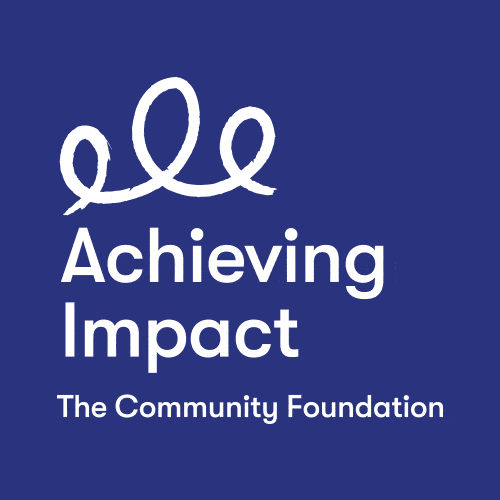
Individuals with lived experience of housing issues and homelessness have identified 13 priority challenges that are not being adequately addressed by existing services, policies or legislation in Northern Ireland.
Organisations and individuals with lived experience have been invited to express an interest in working together to develop new solutions to one or more of these challenges through an innovation process. The programme will lead to a series of grants being made to the most promising ideas, with the final decisions being made by individuals with lived experience of housing issues and homelessness in spring 2023.
To register for an online information seminar click here
or email gmccaughley@communityfoundationni.org
To express an interest in a place on the programme – Apply here

Priority Challenges & Issues
The Foundation’s Housing & Homelessness Programme Steering Group, which comprises individuals with lived experience as well as representatives of key organisations working on housing and homelessness, reviewed the results of the survey and the associated research and agreed the following 13 themes as the basis for the next stage of the programme.
Below is the list of priority challenge themes and issues identified in each theme.
Rented housing
Issues identified relating to this theme:
*Unfairness of the social housing points system
*Undersupply of social housing
*Social housing waiting lists
*Poor accommodation standards and maintenance
*Affordability in the private rented sector
*Lack of regulation of private rented sector
Mental health & complex needs
Issues identified relating to this theme:
*Mental ill health as both a cause and effect of homelessness
*Link with retaining tenancies and wider housing supply issue
*Lack of support and empathy from staff in hostels
*Hostel staff not knowing how to deal with mental health crises
*Link with addictions not adequately understood
*People not getting the help they need, when they need it
Stigma & respect
Issues identified relating to this theme:
*Agency staff showing a lack of respect
*Exclusionary treatment of specific groups including people with other gender identities and people with criminal records
*Stigmatisation of homelessness
Hostels & temporary emergency accommodation
Issues identified relating to this theme:
*Safety
*Sleep disruption
*Negative impact on mental health
*Lack of access to accommodation
*Exclusionary/oppressive rules e.g. not catering for people with addictions, ‘grounding’ residents
*Having to pay for services
*Inadequate facilities
*Insufficient specialist services for women
*Staff not adequately trained / mistreating residents
Violence against women & girls
Issues identified relating to this theme:
* Impact of traumatic circumstances/childhood trauma
*Relationship/family breakdown
*Very high prevalence and interconnection between chronic homelessness and experience of domestic violence/abuse
Female homelessness
Issues identified relating to this theme:
*Impact of traumatic circumstances/childhood trauma
*Relationship/family breakdown
*Very high prevalence and interconnection between chronic homelessness and experience of domestic violence/abuse
Services/support for male and other victims of domestic violence
Issues identified relating to this theme:
*Lack of appropriate, tailored support and services, including emergency accommodation
Relationship breakdown
Issues identified relating to this theme:
*Cited as one of the top 5 reasons for homelessness when presenting as homeless to NI Housing Executive
*Relationship breakdown was cited as interconnected to a range of circumstances by service users
*Cycle of relationship was cited as a barrier to getting out of chronic homelessness by service users and stakeholders in interviews on chronic homelessness for women.
Homelessness affecting asylum seekers and refugees
Issues identified relating to this theme:
*Poor, substandard housing and uncertainty about housing and frequent housing moves
*Poor or little support during the transition period from asylum seeker to refugee status
*Evidence points to this period as a moment during which asylum seekers are made vulnerable to destitution and exploitation;
*Lack of accurate data on asylum
*Lack of support for dealing with the mental health issues of asylum seekers and refugees.
*No support for victims of torture
Homelessness affecting LGBTQ+ people
Issues identified relating to this theme:
*Family rejection or relationship breakdown, majority of family rejection was related to gender identity.
*Trans respondents particularly vulnerable to experience of repeat homelessness due to sustained transphobic abuse.
*Negative perception of NI Housing Executive presented as a barrier to accessing support
*Negative perceptions regarding the condition of NI Housing Executive housing stock and locations in areas perceived to be unsafe
Homelessness affecting young people
Issues identified relating to this theme:
*Stigma of homelessness is concerning
*There is a feeling that there is no support available
*Young people are broadly unaware of what information is available and where to go to try and access information about homelessness
*More can be done to inform young people in order to prevent homelessness
*The cyclical nature of disadvantage and homelessness
*The importance of trusted people in the lives of young people and accessing information
*Low visibility of the issue of homelessness and youth homelessness specifically.
Early intervention support
Issues identified relating to this theme:
*Support to prevent housing issues (e.g. retaining tenancies) escalating to homelessness
*Mental health support (e.g. to new mothers)
*Ongoing support to people exiting services
Agencies & organisations not collaborating enough
Issues identified relating to this theme:
*Lack of interagency approaches

Research sources
The priority challenges were derived from a number of sources, including a community survey, online workshops and research based on insights from those with lived experience of the issues. See below reference to the sources of documents used for the purposes of these insights.
CFNI Survey Results, Sept 2021
The Community Foundation for Northern Ireland, as part of its Housing and Homelessness Programme, published a survey in September 2021 to gather the views of people with lived experience of housing issues and homelessness in Northern Ireland on the key challenges that are not being adequately addressed by existing services, policies and/or legislation. This paper provides a data analysis and key findings from that survey. This report was produced by Gillian McKee from GIRAFFE Associates Ltd
kNowwhere to go, Sept 2021
This report was produced by the Northern Ireland Youth Forum Change Project. The Change Project emerged out of collaboration between the NI Housing Executive (Homelessness Strategy and Policy Unit and Community Involvement and Social Cohesion Team) and the NI Youth Forum (NIYF) via their Relentless Change Project, which is funded by The National Lottery Community Fund and seeks to build the capacity of young people, aged 16-25 who have experienced homelessness or have been in care. This research sought to engage with young people that have experienced homelessness and understand the issues and barriers facing young people at risk of or currently homelessness.
Homelessness Service User Journey, Jan-March 2021
The research was externally commissioned by the Housing Executive and undertaken by lead consultant, Fiona Boyle with support from the Housing Executive via the Research Unit and the Homelessness Policy & Strategy Unit. The purpose of the research was to provide the Housing Executive with an improved understanding of service users who currently use or have used homeless services, looking specifically at the homelessness process, and the individual’s journey into, through and in some cases out of homelessness. In particular the research aimed to provide understanding on the type and broad range and variety of ‘journeys’ experienced by homeless service users.
The impact of Chronic Homelessness for Women, Jan 2021
A report for the Northern Ireland Housing Executive by Fiona Boyle, from Fiona Boyle Associates. In January 2020 Fiona Boyle Associates were commissioned to undertake research exploring the impacts of chronic homelessness for women. The purpose of the research was to assist the Housing Executive in understanding the scale and impact of the issue, whilst also identifying any additional gender specific issues that should be addressed in future action plans and service delivery, both by the Housing Executive and wider service providers in the statutory and voluntary sectors.
Northern Ireland Housing Statistics 2019-2020
The Northern Ireland Housing Statistics is an annual compendium of statistics which provides information on a range of areas relating to housing. The report is divided into sections covering supply, energy, social renting demand, private renting demand, owner occupier demand and household characteristics.
Asylum Seekers and Refugee' Experiences in Northern Ireland Feb- June 2016
This report was commissioned by the Racial Equality Unit at the Executive Office, to inform the development of a refuge integration strategy for Northern Ireland. The research was conducted by The Senator George J. Mitchell Institute for Global Peace, Security, and Justice, Queen’s University Belfast. The research was led by Dr. Fiona Murphy and Dr. Ulrike M. Vieten. This report focuses on the everyday life experiences of asylum seekers and refugees in Northern Ireland.
Through Our Eyes, 2015
The Northern Ireland Housing Executive (NIHE) commissioned this study into Lesbian, Gay, Bisexual and Transgender (LGB&T) homelessness in Northern Ireland. The broad aim of the research was to add to the NIHE’s evidence base on the changing characteristics of homelessness in Northern Ireland, specifically with regards to Northern Ireland’s LGB&T communities. This research project was undertaken by The Rainbow Project (TRP), in partnership with Council for the Homeless Northern Ireland (CHNI).

Who to speak to


